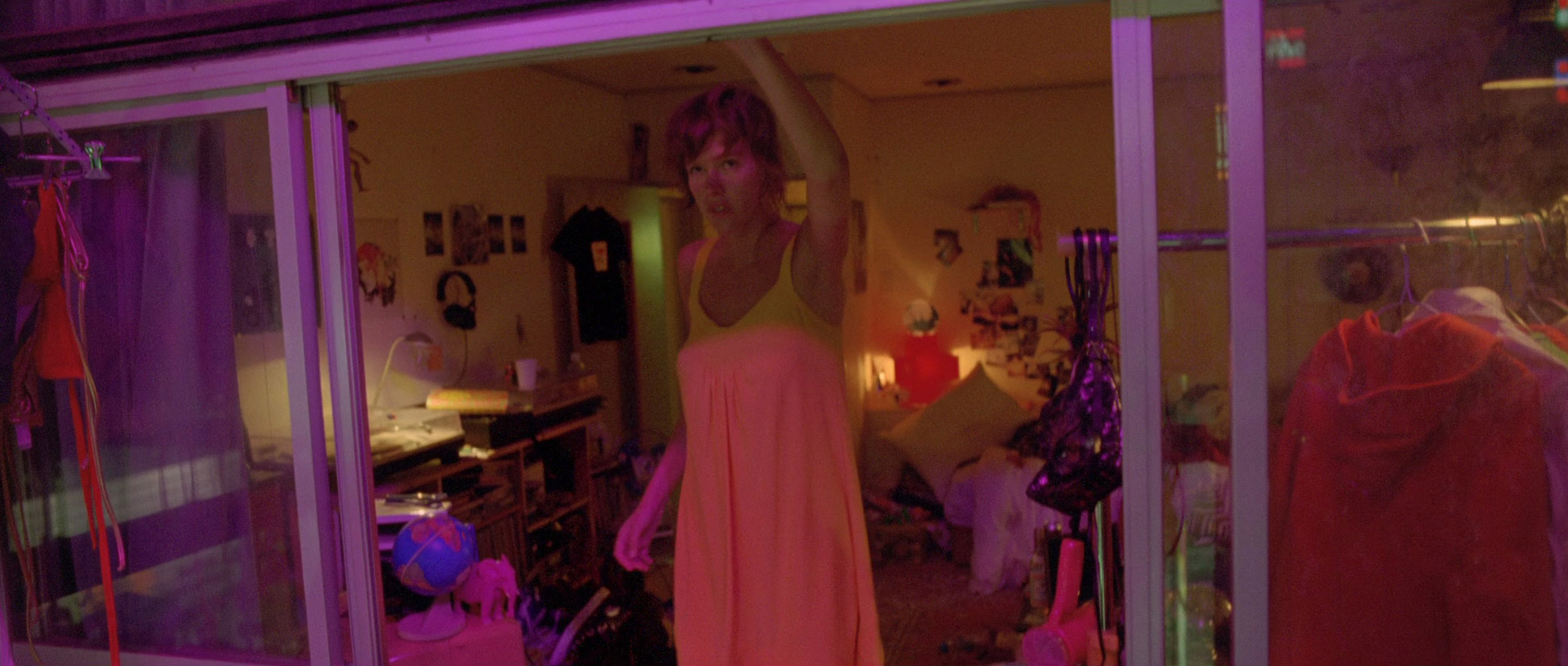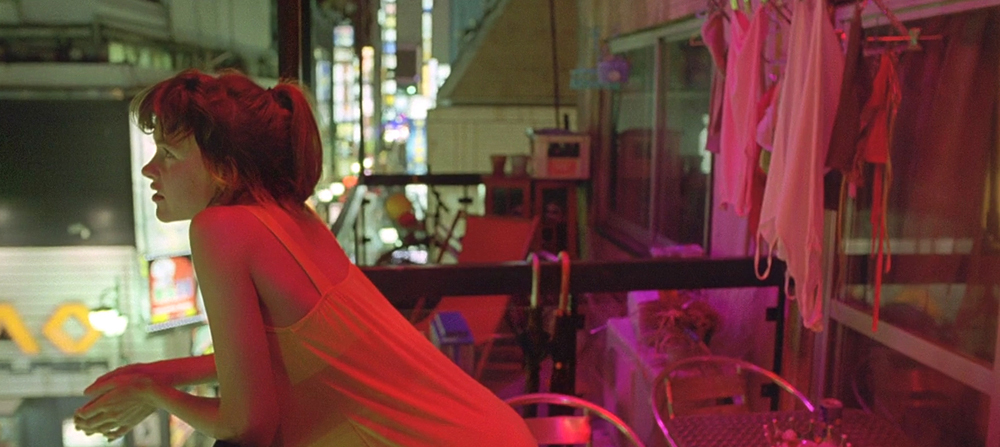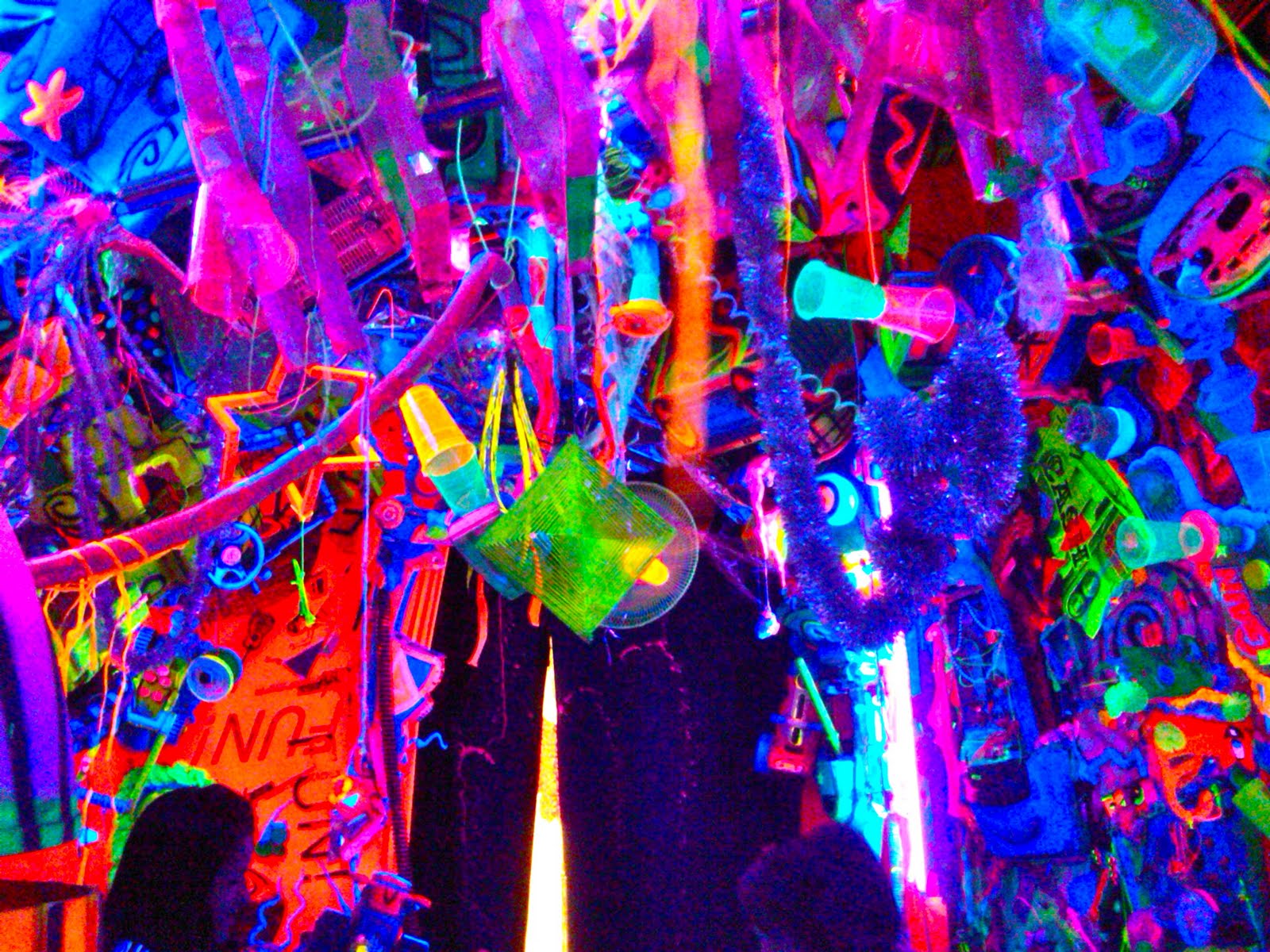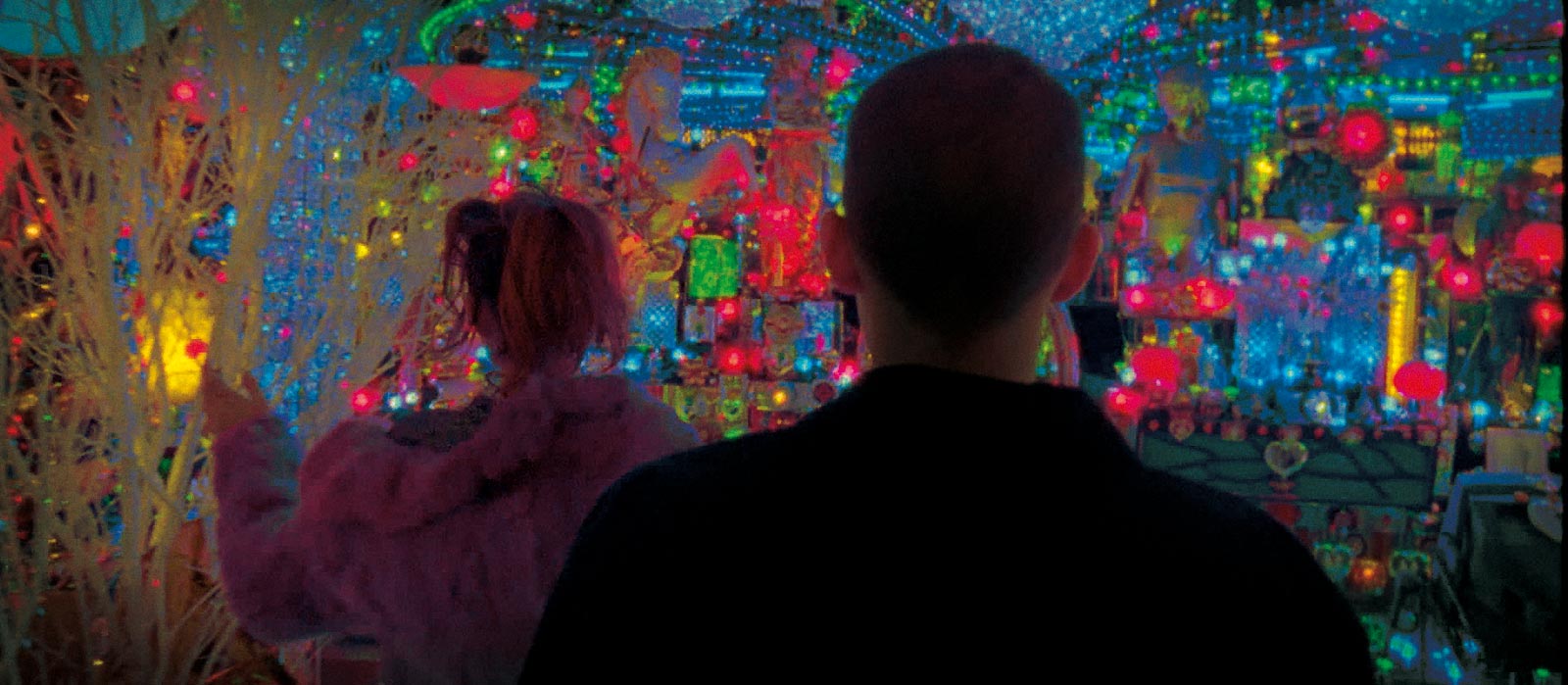TOKYO TRIP: Going to make you freak
With : Paz de la Huerta (Linda) ; Nathaniel Brown
(Oscar) ; Olly Alexander (Victor) and Cyril Roy
(Alex)
Directed by Gaspar Noé
MPAA rating : unrated
Reviewer's rating : 4,5 stars
Running time : 161 minutes
Genre : «Psychedelic melodrama »
Studios : les Cinémas de la zone / Fildélité films
The story takes place in Tokyo. Years after having been separated when they were children, following the violent car crash which killed their parents, Oscar survives by dealing drugs. Linda, his young sister, faithful to their promise never to leave each other, joined him in the metropolis and found a job as a stripper in a nightclub.
One night, Oscar went to a bar called « The Void » to meet his friend Victor to sell him drugs. On his way, Alex, one of his friends talks about The Tibetan Book of the Dead (Bardo Thödol), which talks about the trip between death and the reincarnation.
Oscar got to The Void and sat with Victor ; as a revenge, Victor denounces him to the police. He tried to hide himself in the toilets of the bar. A police officer shot Oscar down who fell on the ground. His soul left his earthly body, the beginning of a long wandering through Tokyo, an « out-of-body » experience mixing memories, shimmering vacuity of the mind like a psychedelic drugs experience, but also bad trips, as the book describes the astral trips... 
The spectator is immediately immersed in the movie with an epileptic
generic, colorful and luminous as a
visual firework, perfectly accompanied by the techno track Freak by LFO. The film opened with a DMT's Oscar trip (an hallucinogenic drug), a captivating series of
psychedelic images, like a kaleidoscope full of warm colors.This movie has been
compared to 2001: A space odyssey, because
of the oneiric scenes and atmosphere, and it seems to me that's deserved. The
spectacular visual effects are to my mind the real power of the movie. Noé is a real master of the camera: it gaves all the dimension of the film. The camera is subjective; it helps to come in
the atmosphere. We followed Oscar, the protagonist. When he died, the camera rose
and began to wander in Tokyo, with long sequences shot, fascinating diving in
each part of a city full of neons. The soundtrack is calm and quiet, which
gives the sensation of a dream, sometimes we have the impression that there's
no time and no place. I would be tempted to say that even if the plot treated
aren't original (the life, the death, love between brother and sister...) the
way that Noé does is: for example, the vision of the movie is a lot inspired by
the Tibetan Book of the Death, (a
bouddhist book which help dead people to reincarnate) which gave to the movie a
more positive perspective about death: the death is not seen as grave, as in our occidental culture.
We may wonder if the principal weakness of Enter the Void isn't the
screenplay; to my mind, there's no real screenplay and it is confused,
imprecise. It adds nothing. The movie don't focal much on the story. Also, at
the beginning, Alex explains clearly the construction of the movie based on the
Tibetan Book of the Death, the stages
like if the spectator will not be able to understand by himself because it's
too "twisted" or senseless. At final, the real problem of Enter the
Void is the running time: I reckon that the movie is too long. After a moment,
it becomes repetitive, the good ideas are exhausted and the wonderful effects
and camera shots end up being the same.
I personally think that the actors are convincing. I had the impression that they believed in their character. Above all, Noé chose people who aren't professional, and the dialogues was total improvisation, with their imagination. We can say it's a good acting.




To conclude, this movie is an unbelievable sensitive experience, a
psychedelic, weird and deranged trip, Enter the Void is an OVNI, shows you a
shimmering Tokyo like you never seen. Enter the Void, we love or hate, but
can't stay impassive. Enjoy!



